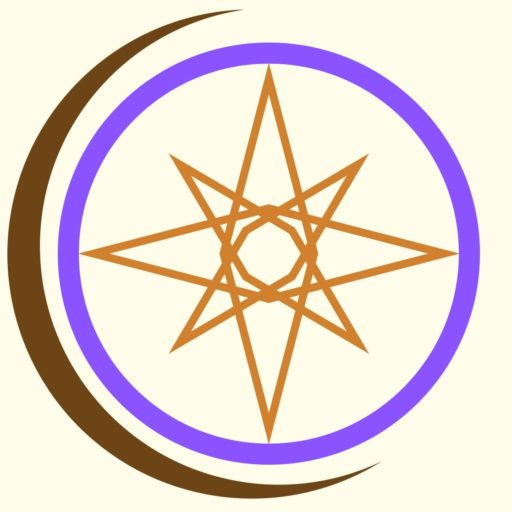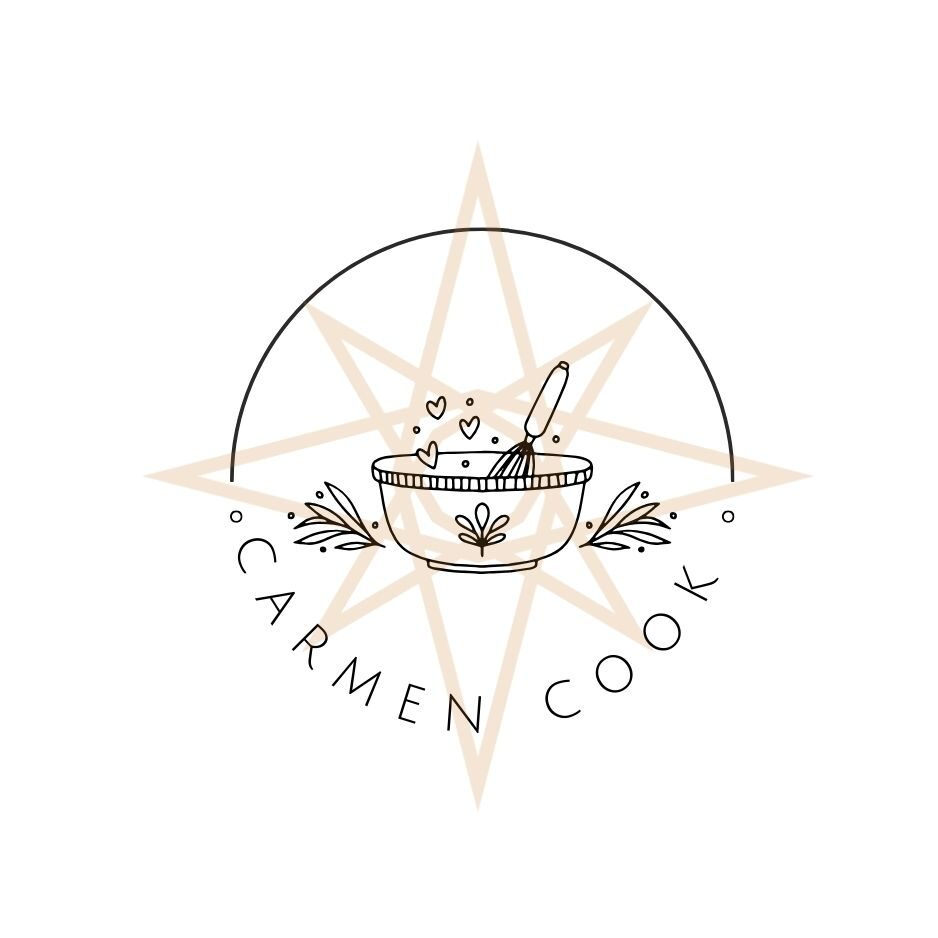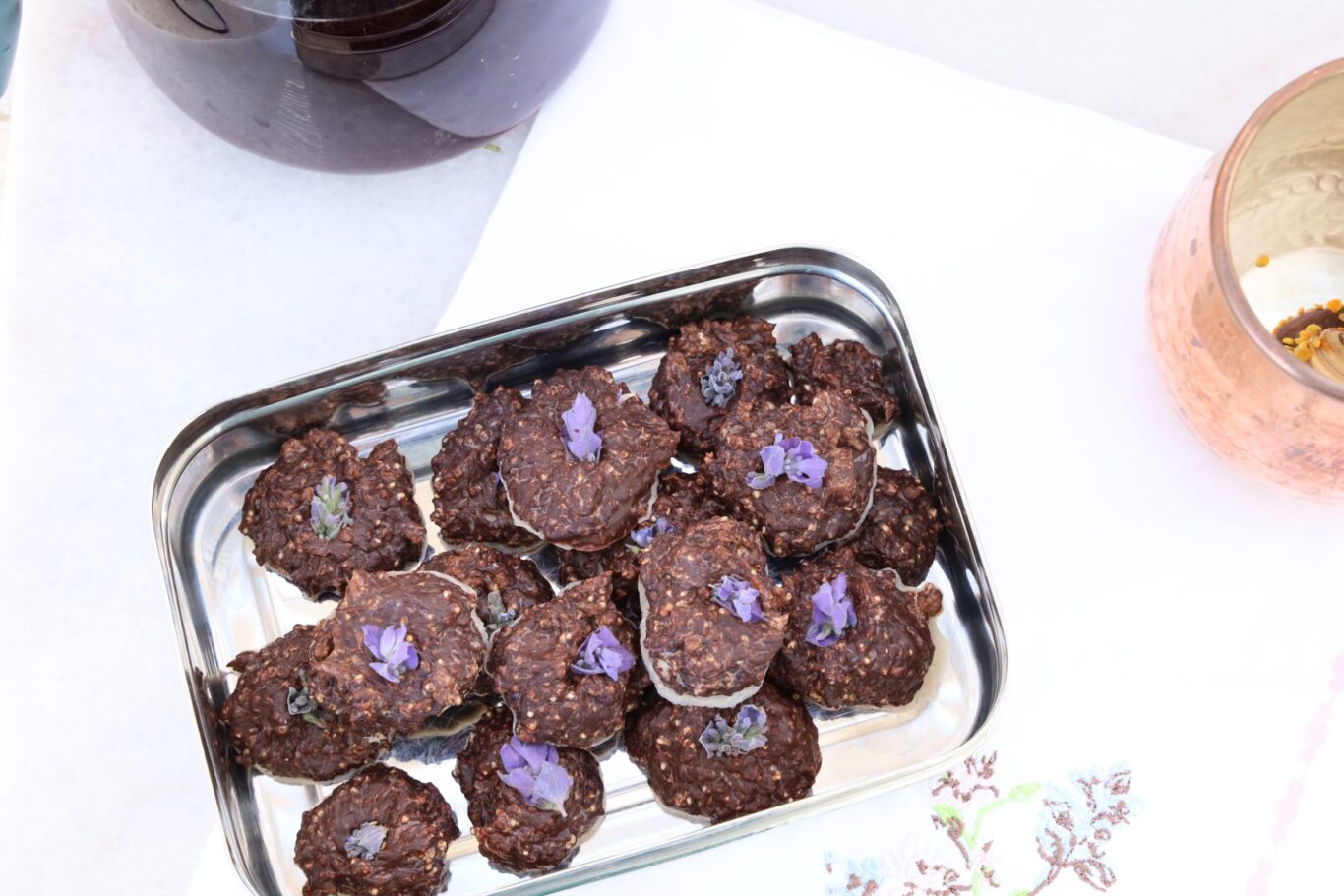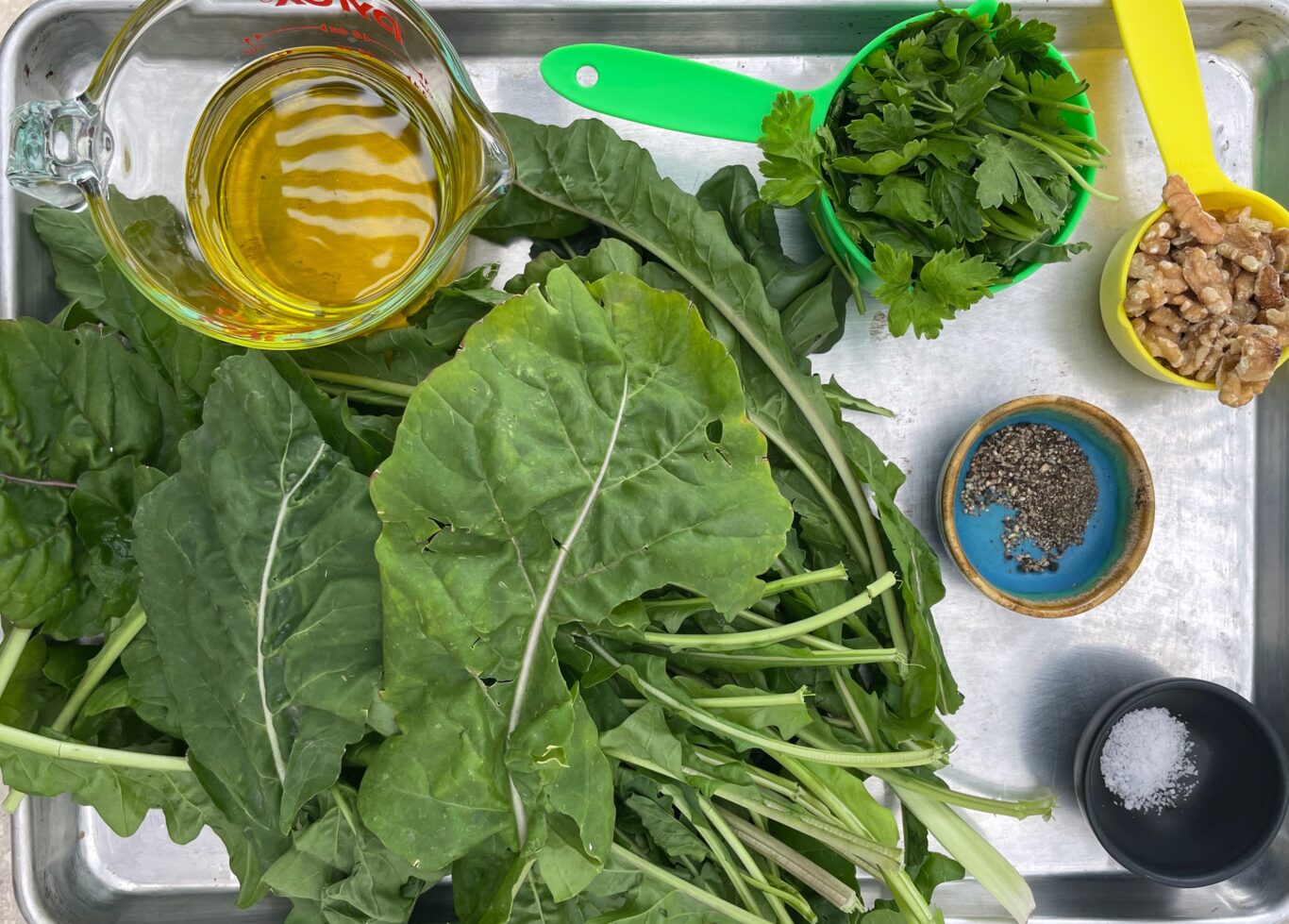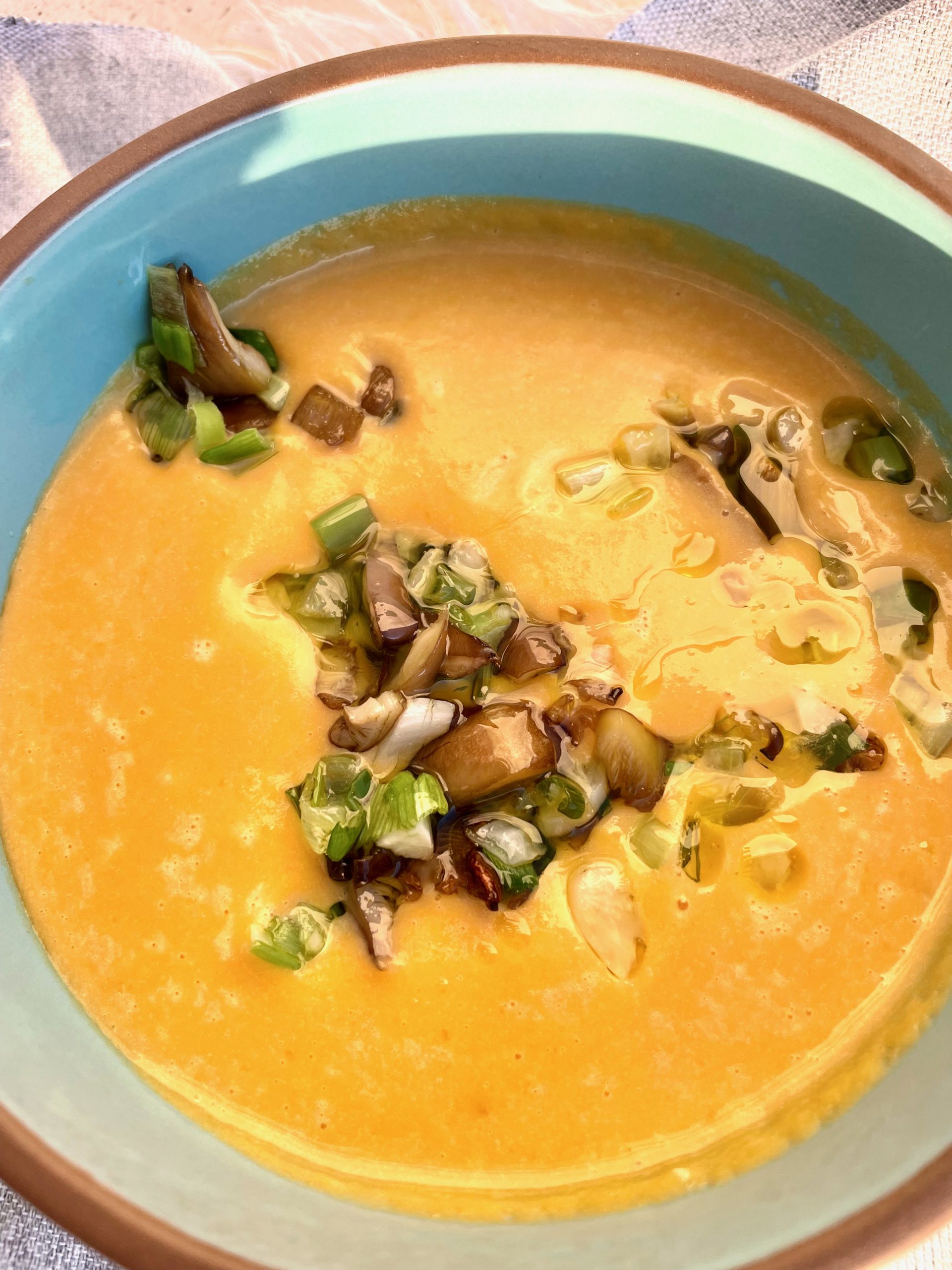Creating a Buddha bowl that matches the glycine content of a collagen supplement (about 2 grams) can be a delicious and healthy way to incorporate essential nutrients into your diet. Let’s use the base ingredients of buckwheat, beets, and edamame, and add a few more to hit our glycine target.
Ingredients and Their Glycine Content:
- Buckwheat:
- Glycine Content: Approximately 500 mg per cup (cooked)
- Quantity: 1 cup
- Glycine Content: Approximately 500 mg per cup (cooked)
- Edamame (cooked):
- Glycine Content: Roughly 280 mg per half cup
- Quantity: 1/2 cup
- Acorn Squash:
- Glycine Content: Approximately 13 mg per 100 grams
- Quantity: 300 grams (about one small acorn squash)
- Additional Ingredients:
- Spinach: 80 mg per 100 grams
- Quantity: 200 grams (about 2 cups, raw)
- Pumpkin Seeds: 57 mg per tablespoon
- Quantity: 6 tablespoons
- Tofu (firm):
- Glycine Content: About 200 mg per 100 grams
- Quantity: 200 grams
- Beets:
- Glycine Content: About 25 mg per 100 grams
- Quantity: 100 grams (about half a medium beet)
- Spinach: 80 mg per 100 grams
Constructing the Revised Buddha Bowl:
- Base: Use 1 cup of cooked buckwheat as the grain base.
- Protein Sources: Add 1/2 cup of cooked edamame and 200 grams of firm tofu, cubed and lightly sautéed or baked.
- Vegetables: Incorporate roasted acorn squash (about one small squash, cubed and roasted) and half a medium beet (roasted or boiled and sliced). Mix in 2 cups of raw spinach for added volume and nutrients.
- Toppings: Sprinkle with 6 tablespoons of pumpkin seeds for crunch and additional glycine.
Dressing:
- Combine olive oil, lemon juice, minced garlic, and a hint of maple syrup or honey for a sweet and savory balance. Season with salt and pepper, and if you like, a small amount of mustard for an extra kick.
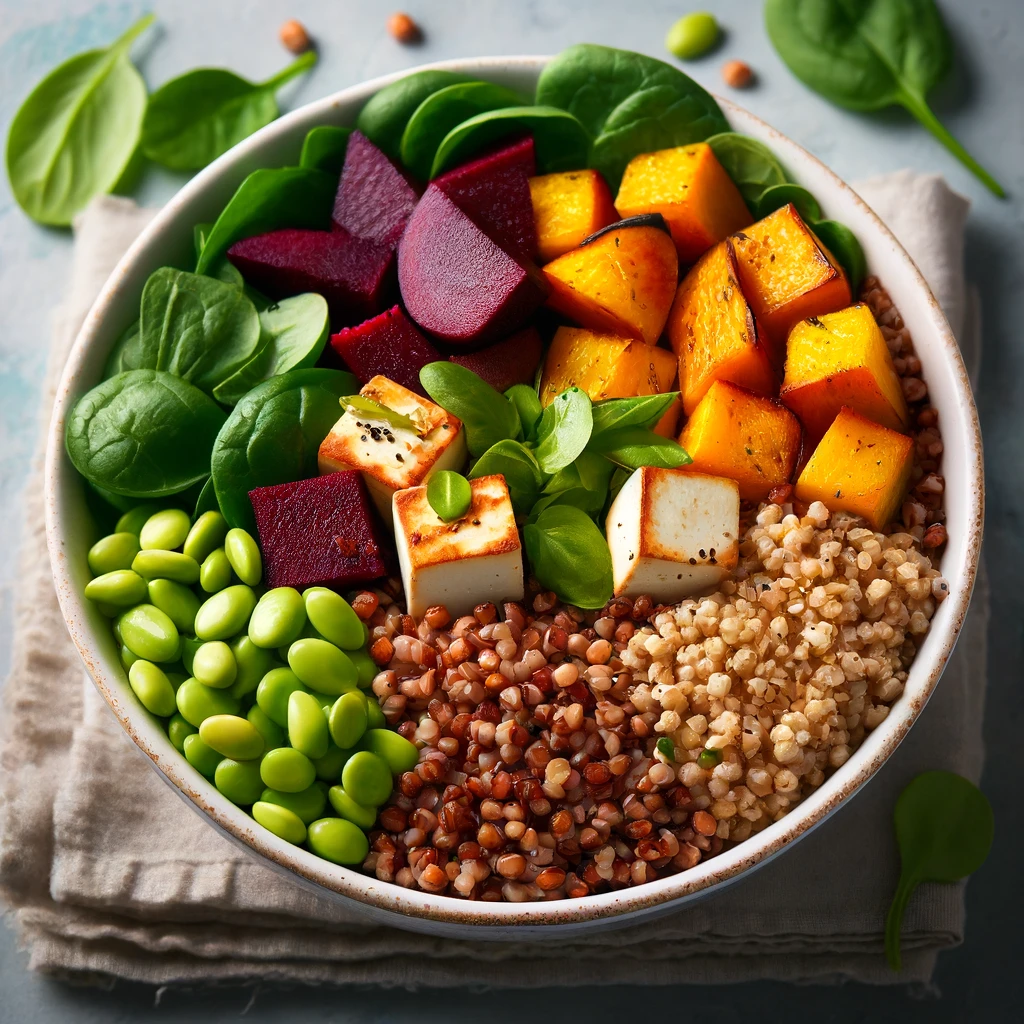
Glycine Total:
This adjusted bowl should still provide a substantial amount of glycine, approaching the 2 grams mark, along with a balanced and nutritious meal that contains far more nutrients found in collagen. The combination of these ingredients not only ensures a rich supply of glycine but also brings a variety of textures and flavors to delight the palate.
Enjoy this wholesome and delicious Buddha bowl, crafted to provide both nutrition and satisfaction in a single meal serving.
Read more about glycine and collagen in this post: http://thecarmencooks.com/staging/3924/why-consuming-glycine-or-serine-is-just-as-good-as-a-collagen-supplement/
Total Nutrients in the Buddha Bowl:
- Calories: 932 kcal
- Carbohydrates: 116 g
- Proteins: 64 g
- Fats: (not previously listed but typically around 35 g based on ingredients like tofu and pumpkin seeds)
Vitamins:
- Vitamin A: Approximately 1530 µg (mostly from spinach and acorn squash)
- Vitamin C: About 75 mg (from spinach, acorn squash, and edamame)
- Vitamin E: Roughly 6 mg (mainly from pumpkin seeds and spinach)
- Vitamin K: Approximately 900 µg (predominantly from spinach)
- Thiamine (B1): About 0.5 mg
- Riboflavin (B2): Roughly 0.6 mg
- Niacin (B3): About 6 mg
- Pantothenic acid (B5): Approximately 2.18 mg
- Vitamin B6: Around 1.2 mg
- Folate: About 500 µg
- Vitamin B12: 0 µg (unless fortified ingredients are used)
Minerals:
- Calcium: Approximately 680 mg
- Iron: About 15 mg
- Magnesium: Roughly 420 mg
- Phosphorus: About 1080 mg
- Potassium: Approximately 2620 mg
- Sodium: (variable depending on added salt and dressing)
- Zinc: Roughly 8 mg
- Selenium: About 20 µg
This nutritional breakdown showcases how the Buddha bowl is not only rich in macronutrients but also provides a broad spectrum of micronutrients that are beneficial for health beyond just glycine and serine intake. This meal is an excellent source of various vitamins and minerals essential for overall wellness, supporting a multitude of bodily functions including muscle function, nerve function, immune health, and more.
Total Nutrients in a Collagen Supplement (per 10 grams):
- Calories: 40 kcal
- Carbohydrates: 0 g
- Proteins: 9 g
- Fats: 0 g (varies by brand and type; some may include small amounts)
Vitamins:
- Vitamin A: 0 µg
- Vitamin C: 0 mg
- Vitamin E: 0 mg
- Vitamin K: 0 µg
- Thiamine (B1): 0 mg
- Riboflavin (B2): 0 mg
- Niacin (B3): 0 mg
- Pantothenic acid (B5): 0 mg
- Vitamin B6: 0 mg
- Folate: 0 µg
- Vitamin B12: 0 µg
Minerals:
- Calcium: Typically low (varies by brand, some may fortify)
- Iron: Typically low or none
- Magnesium: 0 mg
- Phosphorus: 0 mg
- Potassium: 0 mg
- Sodium: Varies (some may contain sodium as a stabilizer or preservative)
- Zinc: 0 mg
- Selenium: 0 µg
Collagen supplements are primarily used for their high protein content and specific amino acids, which are essential for various body functions like skin elasticity and joint health. They are not a source of vitamins or minerals unless specifically fortified. This is a key reason why integrating whole foods, like those in the Buddha bowl, into one’s diet is beneficial for obtaining a broader array of essential nutrients.
